HUN Seyhakunthy
Research Associate (On Study Leave)
Seyhakunthy is a member of the research team at the Centre for Educational Research and Innovation. He attended Graduate School of International Development, Nagoya University, to earn his master's degree in Human Resource and Education Development. Interns have benefited from his enthusiasm and extensive research experience, which they have used to hone their abilities in areas such as project planning and management, literature review, translation and transcription, data collection and analysis, and report writing. He has authored and co-authored a few publications and articles. He is particularly interested in the economics of education, as well as the development of higher education with a particular emphasis on addressing skill gaps and mismatches.
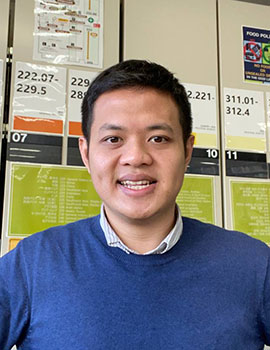
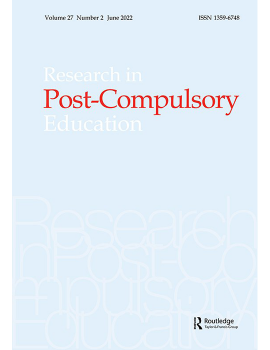
This study intends to identify existing permeability pathways between post-secondary education and training in Cambodia and to highlight hindrances that hamper the smooth permeability between the two systems. Adopting a hybrid process, the study combines both inductive and deductive thematic analysis approaches in coding transcribed interviews at 1...
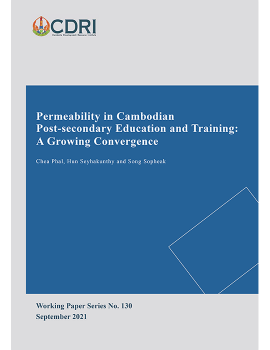
This study explores the permeability between Cambodia’s post-secondary technical and vocational education and training (TVET) and academic higher education systems. Permeability refers to the ability of learners to transfer across educational tracks and qualification levels, promoting lifelong learning and social inclusion. Drawing on interviews wi...
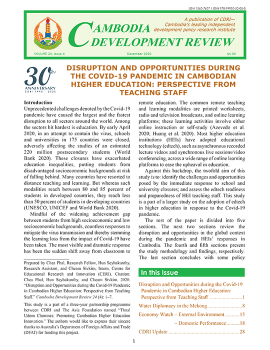
The twofold aim of this study is to: identify the challenges and opportunities posed by the immediate response to school and university closures; and assess the edtech readiness and preparedness of HEI teaching staff. The findings demonstrate that unstable internet connection and difficulty assessing student performance are the biggest obstacles im...
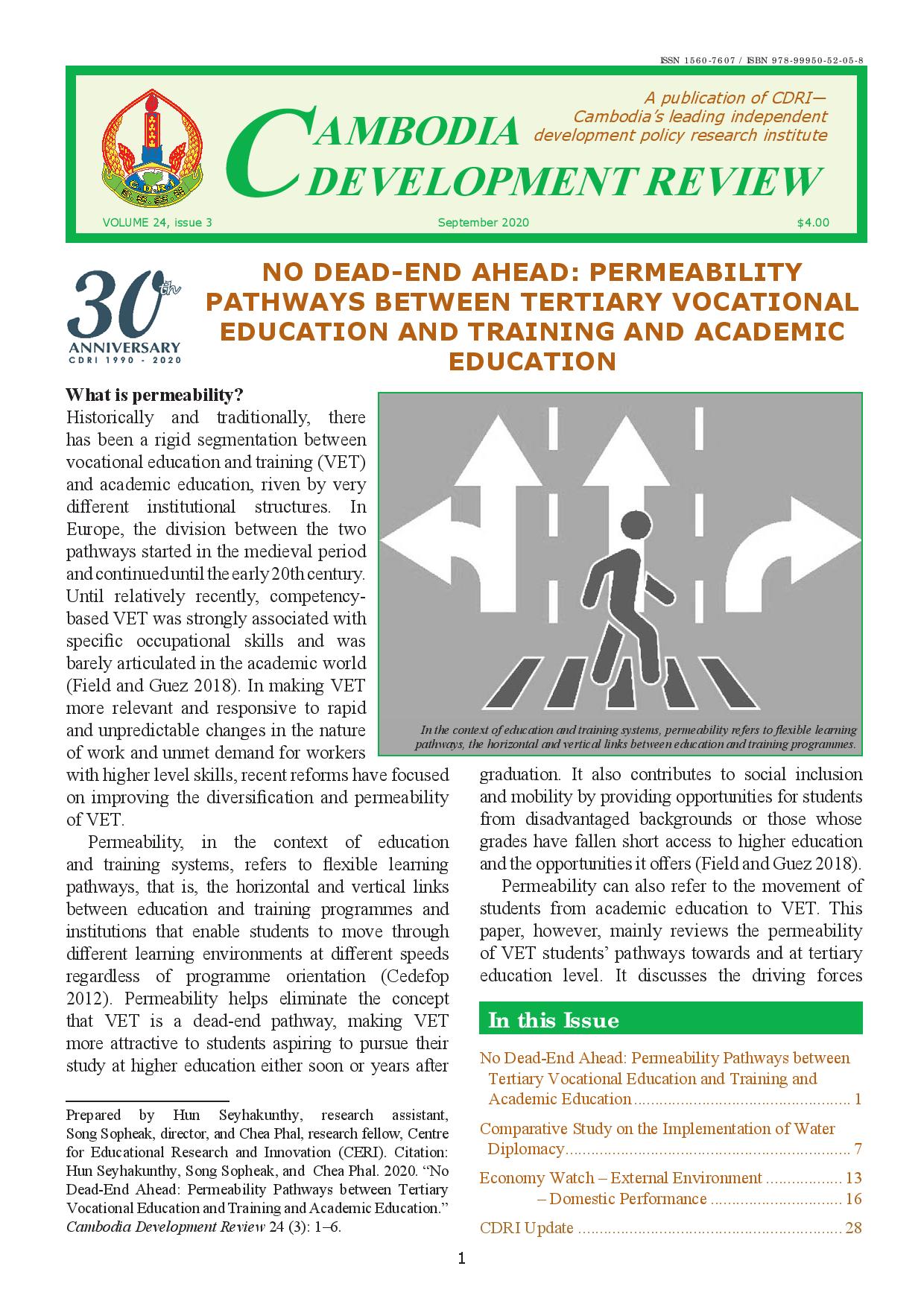
Permeability, in the context of education and training systems, refers to flexible learning pathways, that is, the horizontal and vertical links between education and training programmes and institutions that enable students to move through different learning environments at different speeds regardless of programme orientation. This study aims at d...
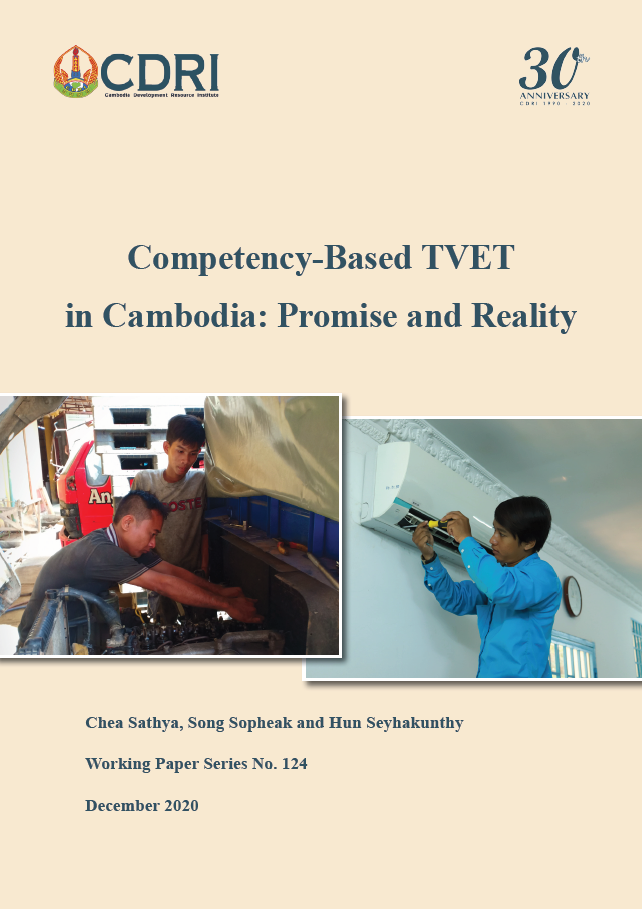
This study examines the development and implementation of competency-based training (CBT) in Cambodia’s technical and vocational education and training (TVET) sector. Introduced to align education with labour market needs, CBT emphasises student-centered, practice-oriented learning and flexible, modular curricula. Despite its potential, CBT impleme...

The gender gap in achievement, which refers to the disparity in academic performance between male and female students, has been a subject of interest not only in education research but also in political and economic contexts. The current discourse surrounding the "gender gap" centres on the question as to whether male students truly exhibit lower a...
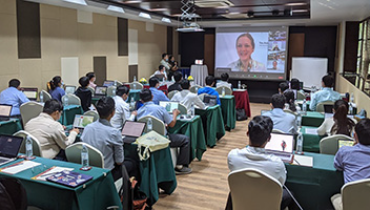
This three-year programme is supported by the Australian Department of Foreign Affairs and Trade (DFAT) through The Asia Foundation (TAF)’s Ponlok Chomnes Programme: Data and Dialogue for Development in Cambodia. In this programme CDRI aims at strengthening the capacity of knowledge-sector institutions to undertake quality research, informing publi...
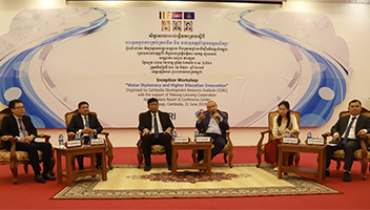
With a steady economic growth hovering between 7-8 percent over the past two decades, Cambodia achieved a lower-middle-income in 2015. Building on this progress, the government aspires to become an upper-middle-income country by 2030 and a high-income country by 2050. Several key issues need to be urgently addressed if Cambodia is to realise the a...
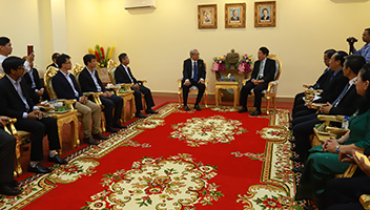
Cambodia has achieved strong growth in the past two decades, and the country has graduated to lower-middle-income status with a per capita income of about USD1,215 (2015). A feat that neighbouring Vietnam achieved in 2010 and Laos in 2011. Building on this achievement, Cambodia aspires to become an upper-middle-income country by 2030 and a high-inc...
